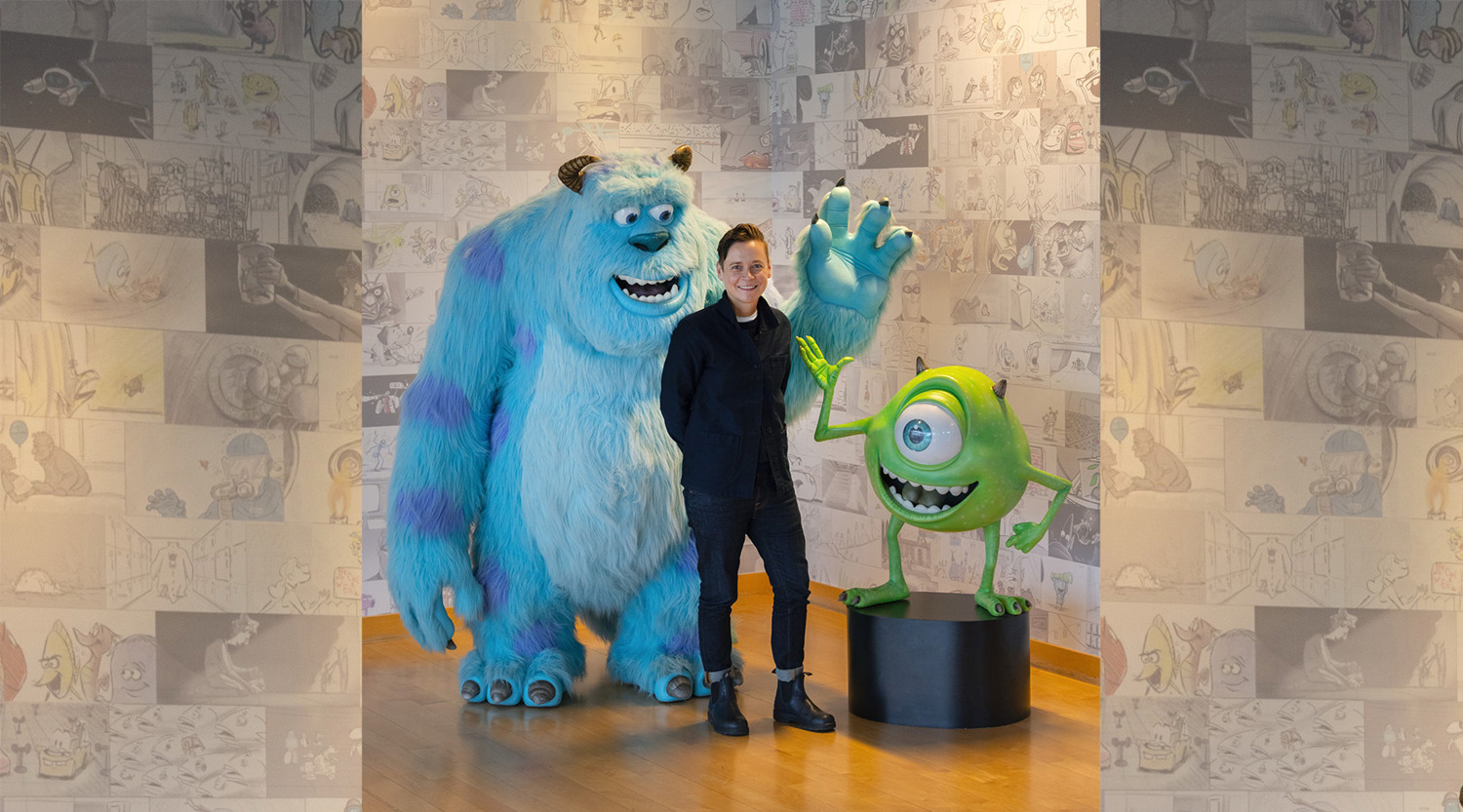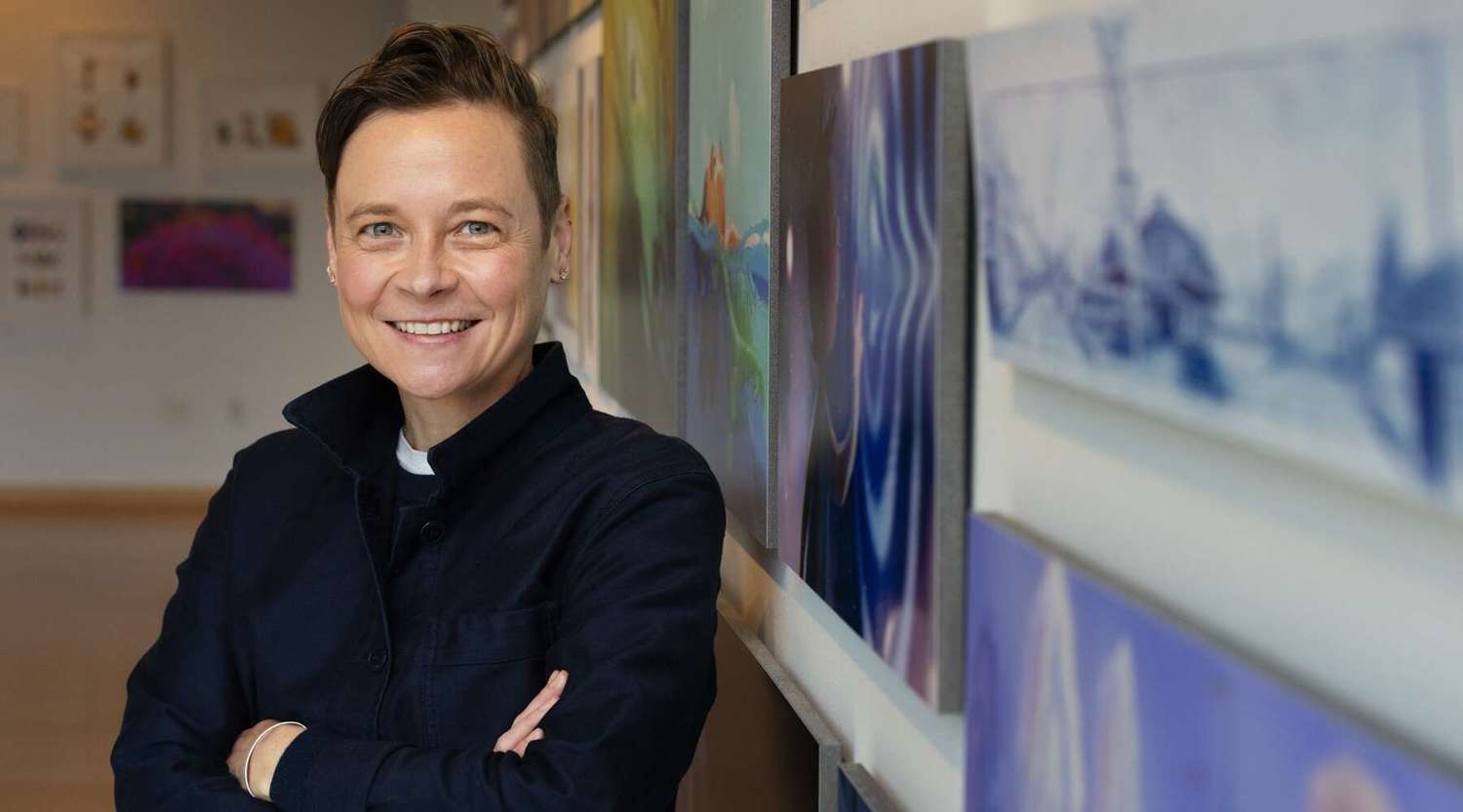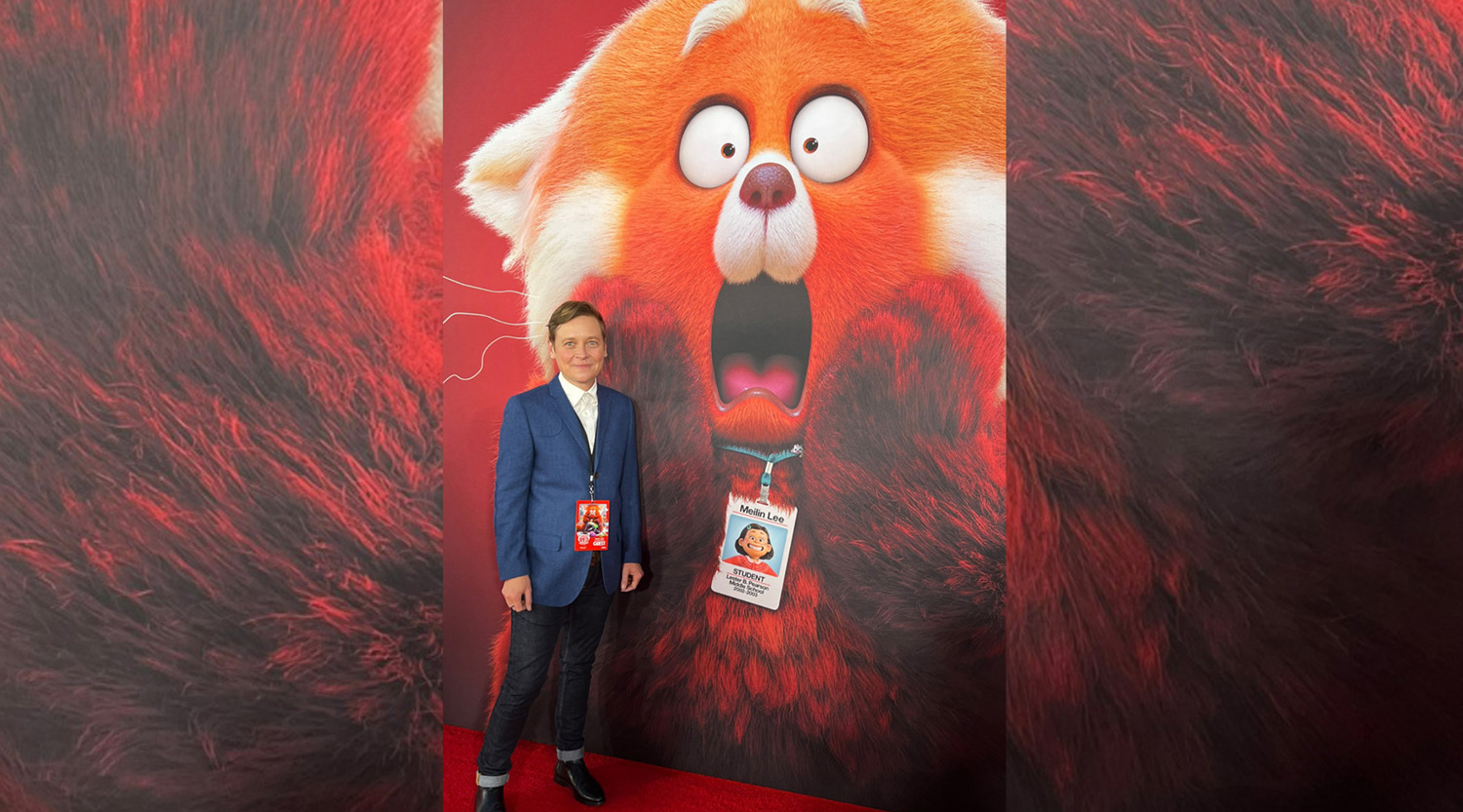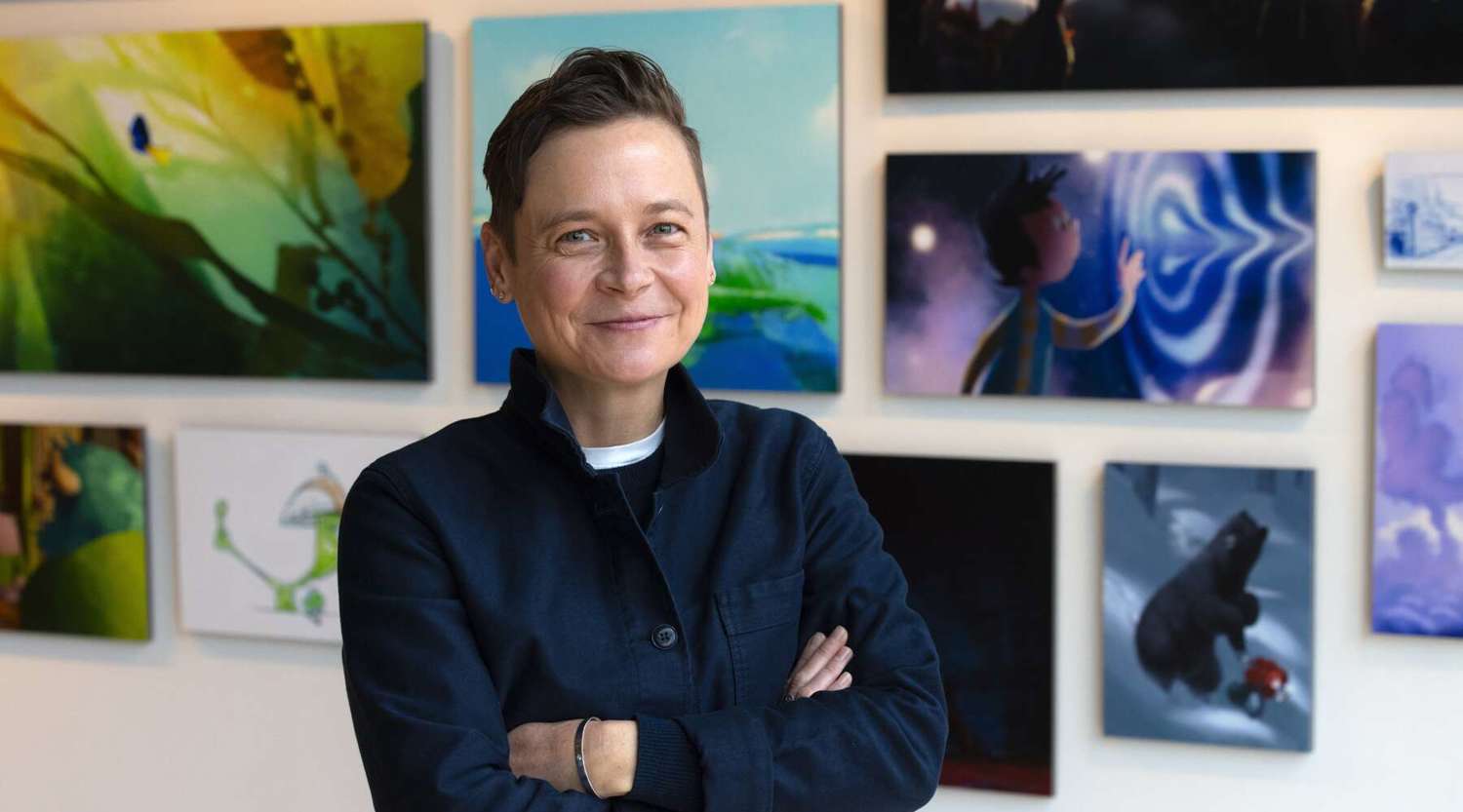Toy Story. Inside Out. Monsters Inc.
Pixar movies have become a global force this millennium for award-winning animation and storytelling, big budgets and bigger profits. And UniSC Arts graduate Lucy Laliberte has been at the heart of the action for 17 years, working her way up in the Californian movie industry to her current role as feature film production manager at the Disney-owned studio. Believe it or not, she still gets starstruck – and she has a wealth of advice for others seeking film industry jobs.
Photo credit: Deborah Coleman, Pixar
You were in UniSC’s second ever cohort of Arts grads in 2000 – did you plan for an Arts degree on the Sunshine Coast to lead to a Californian film career?
I didn't think my degree would lead me here, at the time. But in hindsight I can see how UniSC prepped me to think bigger about my career. Branching out and taking a variety of classes helped me really dig into things that interested me. I had a focus on Environmental Studies and International Relations, so I wasn't necessarily primed for the film industry, but being in an environment that challenged me certainly prepared me for the work I do today.
After graduating from UniSC, I applied for a scholarship to a US college (Smith College in Massachusetts) where I did some graduate study. That at least allowed me to move to the US, where I met people working in the creative field. I lived here for seven years before landing a job at Pixar. I started at the bottom, and have worked my way up over the years.
An Arts degree can lead to so many different job opportunities. It's a great foundation and a degree with diverse areas of focus, so you can take yourself in many different directions.
Photo credit: Deborah Coleman, Pixar
What was it like working your way up in production in the film industry, specifically Disney’s Pixar?
It’s been a steady journey. I wouldn't say it’s been easy, but it has definitely been rewarding and fun! Making movies is hard work and we're constantly juggling a lot of priorities with aggressive deadlines. But the planning and strategy of how to get things done is the fun part for me. And we get to make a product that people love, so that's been really fulfilling.
A lot of us mistakenly assume Disney is in LA/Hollywood, what are a few other things about working at Pixar that outsiders would be surprised at?
One thing that always surprises people is how long our films take to make. It’s a process that takes anywhere from four years up to six years sometimes. From the beginning stages of writing a script to the final frames being rendered, it’s a slow but also very busy process where we are crunching from the very beginning to the end.
What are the most interesting things that you’ve learned about working in movies that you didn’t know before?
Anyone can do it! Especially in the animation world, there's a job for everyone. Whether you’re super organised, artistic or really into numbers, the range of talent it takes to make a movie is expansive. Working in animation is a lot of fun, and often doesn’t feel like a job at all. We are just a bunch of creative movie-nerds that love what we do. We get to come to work each day with our friends and make cool stuff. It’s not very Hollywood here at Pixar, and that makes it a unique and fun place to work.
Can you give us some behind-the-scenes goss – brushes with fame?
We’re not making our movies in the heart of Hollywood and are a little secluded from the celebrity that surrounds the industry, so I do get star-struck when we have actors visit or I see them at our premieres. We’re lucky enough to have filmmakers visit and screen their movies here for us, so we get to see some great Q and As with the talent - most recently, Demi Moore visited for The Substance. (Moore this month won a Golden Globe for her acting performance in the horror feature.) It’s still a novelty to me and a fun perk of the job. For the most part though, I consider my brushes with fame to be with the people I work with every day. They're the best in the industry and I’m lucky to be able to work alongside them. That, and one day almost knocking Sigourney Weaver over by coming around a corner too fast! (Weaver voiced characters in Finding Dory and WALL-E.)
Photo credit: Deborah Coleman, Pixar
What are a couple of the most successful movies you’ve worked on, and what sort of tasks were your responsibility?
I started at Pixar working on Toy Story 3 and have worked on 10 feature films in total. Some notable movies are Inside Out, Coco and Turning Red, and the short film Bao. Mostly, my responsibilities have been to manage teams of people on the films, and shepherd their workload from start to finish over the course of the film. On my current project Hoppers, which might be my favourite yet, in my role as production manager I’m working directly with producer Nicole Paradis Grindle (Incredibles 2) and director Daniel Chong (TV series We Baby Bears) to essentially make sure everyone has everything they need to complete their work on time, and on budget.
What are some of the biggest changes you’ve seen in the US west coast movie industry over 20 years?
The biggest change is more recent. The way audiences are consuming media is changing a lot, especially with streaming and social media really taking off. But thankfully there is still a great appetite for seeing movies on the big screen.
What does your family think of your career success – in Australia or the US?
They’re excited about the work I do. I still get a kick out of it myself, so they share that excitement about working in a creative field and getting to do what I love. I’m lucky to have shared a few premieres with my wife, which is always really fun. My Aussie family hasn’t travelled to a premiere with me yet but it would be a dream to have them join us.
What’s next for you?
The movie I’m working on, Hoppers, is due for release in the US spring of 2026, which will be autumn for Aussies. It’s about animals – and that’s almost all I can say about it at the moment! I’ll be working on getting the movie finished up until then. After that, I hope to be working on another fun project here. I love my role and hope I continue to work with teams to strategise how to make our movies.
Photo credit: Deborah Coleman, Pixar
Can you offer any insights about US and Australian film industry jobs, how graduates could get a foot in the door in 2025 and beyond?
The film industry can be a hard one to break into. For people starting out, I always suggest that you just get your hands dirty with any work you can. That might mean teaming up with other students or colleagues to make your own short films, taking film classes, or applying for internships to gain experience. It all counts. Australia has such a great film and TV industry, it would be a dream to work on an Australian production one day. There’s so much cool stuff happening there right now, but again, I’d take advantage of any opportunities you can find. Making your own stuff is always a great way to learn the nuts and bolts of production. Anyone can figure out how to use a camera and put together a schedule and a budget!
SNAPSHOT:
- Upcoming film Hoppers: managing 15 departments, facilitating weekly whiteboard checks, maintaining expert understanding of every sequence in the production pipeline
- Music video 1 True Love 4 Town: as co-producer successfully navigated budget constraints, securing approvals from high-profile artists Billie Eilish and Finneas
- Movie Onward (urban fantasy released 2020): innovative approach included advocating for increased diversity in crowd scenes and LGBTQIA+ representation
Media enquiries: Please contact the Media Team media@usc.edu.au






